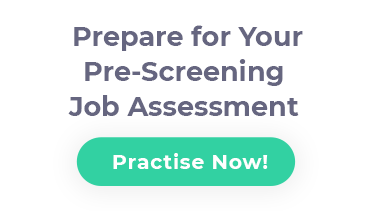College of Policing Recruitment Process, Assessment Tests & Interviews Online Preparation – 2025

What Is the College of Policing?
The College of Policing is a Civil Service organisation that supports the professional development of law enforcement, sets standards and guidelines, and helps share knowledge across all police sectors in England and Wales.
The College of Policing offers several development schemes for people at all levels of their careers. These roles include:
- Police officers
- Communications officers
- Crime analysts
- Command and dispatch
- Prosecution file preparation officers
- Firearms licensing assurance managers
- Resource and performance analysts
- Human resources
Working at the College of Policing
The College of Policing values equality, diversity, and differences among its employees. They understand that to achieve their organisational goals, their employees must be committed and motivated to perform at their best. That is why the College of Policing offers several benefits to their employees to ensure they are happy in their positions and enjoy work/life balance:
- Pension plans
- Death benefit
- Flexible working
- Annual leave
- Special leave
- Fertility treatment and parental leave
- Career development opportunities, including workshops, apprenticeships, and free education materials
- Health, dental, and vision insurance
- Employee support service
- Mental health first aiders
- Gym access and discounts
Additionally, they have several employee groups and networks where workers can find support, have their voices heard, and share experiences with others.
What Is the Recruitment Process at the College of Policing?
Online Application
There are three routes that you can take to get a job at the College of Policing: Apprenticeship (PCDA), Degree-Holder Entry Programme (DHEP), or the traditional Initial Police Programme (IPLDP). However, no matter which route you take, the overall application process is similar.
To start, job seekers will need to complete an online application where they will upload a CV, provide personal details, and answer some screening questions for the position. How you answer the screening questions in the application will determine which recruitment route you will take.
Attention to detail is a critical skill in policing. Therefore, any applications with errors or CVs with typos will likely be eliminated. Read through your application documents before submitting them to ensure everything is easy to read and error-free.
Aptitude Tests
During the initial application process, applicants will also take several aptitude tests to show the hiring team their skills, strengths, and weaknesses. The exact tests you take may vary depending on the role you are applying for and the application route you are taking, but all candidates should prepare to take the following tests at a minimum:
- Numerical Reasoning Exam – One aptitude test you will likely take is the numerical reasoning test. Numerical reasoning tests assess your mathematics skills and ability to use numbers to solve problems. You’ll have 23 minutes to complete this multiple-choice test that will include skills such as:
- Addition
- Subtraction
- Multiplication
- Division
- Percentages
- Ratios
- Graphs
- Tables
- Charts
Be prepared to answer word problems, solve equations, and interpret data to draw conclusions. Because the test is timed, you must work through the problems quickly and efficiently to complete the exam.
- Verbal Reasoning Test – All policing jobs will also require you to read and understand written information and then apply that knowledge. The verbal reasoning test will assess that skill by asking you to analyse passages of information. These will be followed by a concluding statement, and you will need to determine if that statement is true, implied true, or false.
Strong communication skills are essential to policing, so candidates who want to proceed must do well on this exam.
- Situational Judgment Test – All candidates should also prepare to take a situational judgment test (SJT). This exam will assess your ability to respond appropriately to situations you may encounter while policing. The exam is 12 questions long and will present several simulated situations and multiple response options. You must analyse the situation and select the best response to the options given.
You will have two hours to complete the exam; therefore, think through all situations carefully and thoroughly. The College of Policing will grade your responses based on specific values and competencies they expect their officers to uphold. Knowing these beforehand will help you select the correct answer.
Assessment Centre
Applicants who meet the job criteria and do well on the online assessments will graduate with the online assessment centre. These will be more specific to the police officer role and help the hiring team better understand your abilities and motivations.
- Written Exercise – One activity you will encounter is the written exercise. This will be a role-playing exercise where you will complete a written assignment based on information given by your line manager. To do well on this assignment, you must write with a strong vocabulary, correct grammar, and clear statements. However, the main focus of this exercise will be to assess how well you can critically analyse the information and objectively produce a report.
- Briefing Exercise – The briefing exercise is similar to the written activity, but this time, you will be responding to questions verbally. You will still be role-playing as a police officer, and you’ll read through a hypothetical situation and answer questions about the information. This activity will be video-based. You will have about 10 minutes to read through the briefing, 60 seconds to prepare each response, and three minutes to record your answer to a question. Remember to read the information carefully, pay attention to the details, and be clear and concise in your responses.
- Competency-Based Interview – Lastly, you will participate in a competency-based interview. This interview is also done via video platform, so you will receive five pre-selected questions and must record your responses for the hiring team. Again, you will be given 60 seconds to prepare for each question, and then you will have five minutes to respond. The purpose of this interview is to ensure that your values and competencies align with those of the College of Policing. You’ll want to tailor each of your responses in a way that highlights your skills and qualifications for the position. Recording responses on video can be intimidating. Preparation for this stage can help you appear more confident in your video. Be sure to look up common interviewing questions and tips, such as using the STAR method to format your responses: Situation, task, action, and result. You can also practice by recording yourself answering questions so you can see how you are on video and tweak your mannerisms as needed for the interview. Remember, even though this may seem like a more casual interview, you should still be as professional as possible. Dress smart, set yourself up in a clean and quiet environment, and reduce as many distractions as possible. You should also have a copy of your CV nearby to reference it if needed.
How to Prepare for the College of Policing Assessment?
The College of Policing is highly selective in its applicants. Since assessments make up the majority of the hiring process, you’ll want to be sure to prepare for them as best as you can to ensure a higher score.
Online practice tests are a great tool to include in your preparation process. These will allow you to answer sample questions and explain why each answer is correct or incorrect. Having this knowledge can help you later on when trying to identify the correct answer on the actual exams. Working through full-length practice tests can also help you rehearse your timing, which is invaluable on these timed exams.
Applicants who take the time to prepare for the pre-employment process have a better chance of success. Therefore, to give yourself the best chance of success, you should give yourself adequate time to prepare and utilise online preparation resources.

